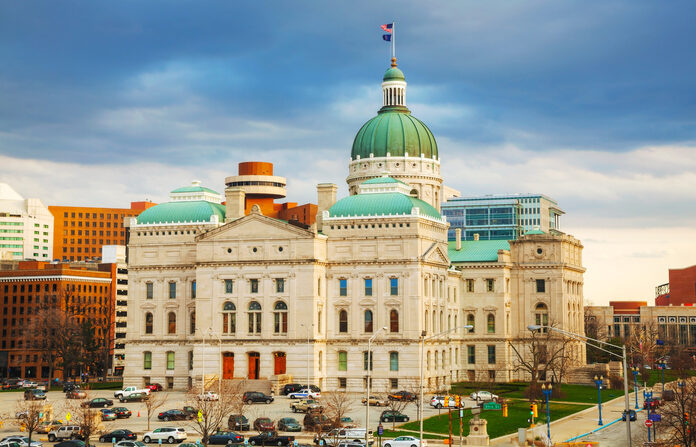The logistics of the Indiana House meeting outside chambers in the state capitol for the 2021 legislative session pale compared to the financial issues the General Assembly expects to face due to the COVID-19 pandemic’s economic effects.
The House plans a meeting location change possibly to the Government South conference center thanks to the coronavirus pandemic and its resulting safety measures. The state Senate is still slated to meet in the statehouse. The next considerations are how to safely include the public, staff, lobbyists and media.
Indiana business organizations want the lawmakers to take action to move the economic recovery along by helping businesses survive.
“Stabilizing the state’s finances will be key and must be balanced with making the proper investments to keep Indiana moving forward,” Kevin Brinegar, president of the Indiana Chamber, told The Center Square. “Important decisions in early 2021 can enhance the ongoing economic recovery and help provide a path for more success in the years to come.”
Brinegar said that local governments have not yet seen the complete financial impact of the pandemic and may have to adjust their property and income tax allocations.
“We will be asking legislators to pass liability protection for small businesses,” Barbara Quandt, Indiana state director of the National Federation of Independent Business, told The Center Square. “Small business owners are doing everything they can to keep their customers and employees safe. They are struggling for survival. On top of the shutdown and all the restrictions during this pandemic, the last thing they need to worry about is someone filing a frivolous lawsuit contending they caught COVID-19 at the business.”
Quandt said they will also be outspoken in asking the legislature to consider halting new regulations and taxes on small businesses and using the remaining CARES Act funding to support the Unemployment Insurance Trust Fund.
“Indiana now has had to borrow money from the federal government for the state’s unemployment insurance trust fund in order to keep paying out claims,” Brinegar said. “How we are going to shore up the fund and repay the loan before penalties kick in is top of mind for both the state and employers. The Indiana Chamber is advocating for using the remaining federal CARES Act dollars the state received, which would be an approved destination for the money.”
Brinegar told The Center Square that it is also time to resolve two important issues.
“First, establishing a work share program will protect employers and their employees during future economic downturns,” Brinegar said. “The lack of prior passage proved costly in 2020 when the state was not able to take advantage of federal money awarded to such state programs. No one wants to let that opportunity pass by again.
“Second, raising the state’s cigarette tax will yield important and long overdue health benefits. And lawmakers tasked with providing funding for schools, health care and other priorities will benefit from the increased revenue,” he said.
Quandt said small business matters should be considered because they affect the whole state.
“Small businesses create the majority of the net new jobs,” Quandt said. “Small businesses also traditionally lead us out of a recession with this job growth, and they employ half of Indiana’s workforce. If small businesses do not survive COVID, some of Indiana’s communities may be forever changed.”
[Originally published at The Center Square. Republished with permission.]











